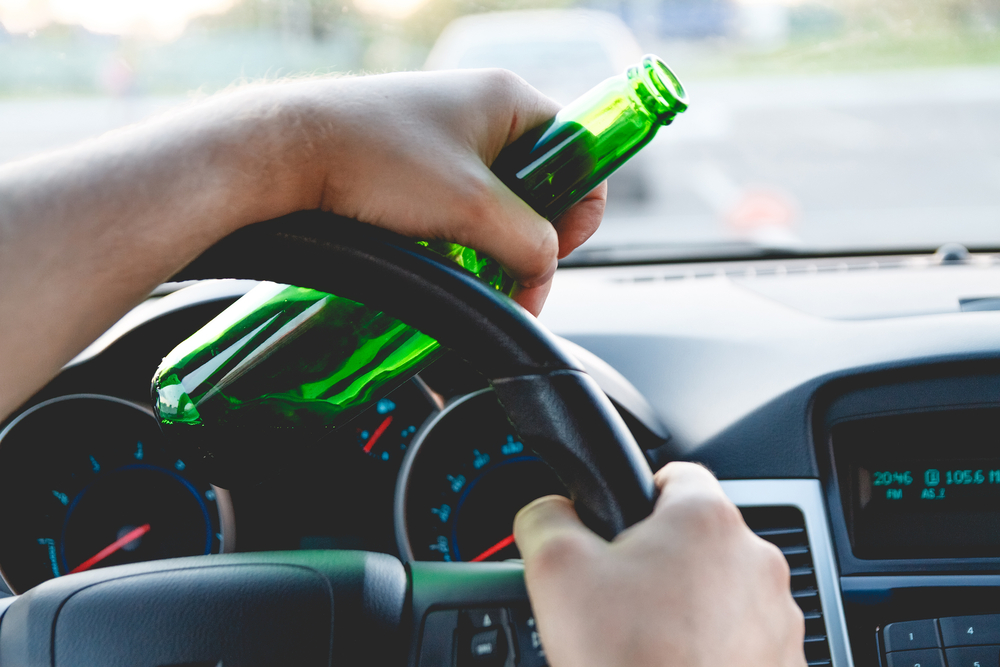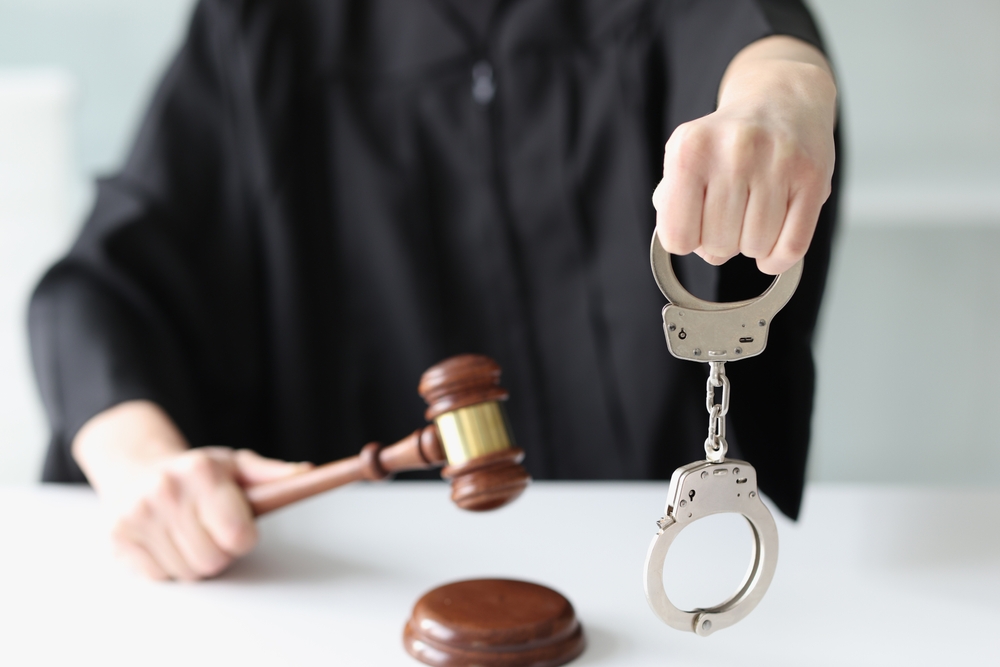During a DUI stop, you have the right to remain silent and not answer questions about where you’ve been or what you’ve been drinking. You must provide your driver’s license, registration, and proof of insurance. You can refuse field sobriety tests, but you may face penalties if you refuse chemical tests like a breathalyzer.
A skilled SC DUI Defense Lawyers can evaluate the legality of your stop and the accuracy of any tests. They can challenge evidence, negotiate with prosecutors, and work to reduce penalties or dismiss charges. A DUI lawyer ensures the best possible outcome for your case by protecting your rights and providing skilled legal representation.
Rights You Have When an Officer Stops You
If you’re pulled over for a suspected DUI (driving under the influence), it’s important to know your rights. Understanding what you can and cannot do during a traffic stop can protect you legally and help prevent the situation from getting worse.
First, you have the right to remain silent. You are not required to answer questions like “Have you been drinking?” or “Where are you coming from?” You can politely say, “I choose to remain silent.” However, when asked, you must provide your driver’s license, registration, and proof of insurance.
You also have the right to refuse field sobriety tests. These are the physical tests police may ask you to perform, like walking in a straight line or standing on one leg. These tests are often used to build a case against you, and you are not legally required to take them in most states. If you are uncomfortable, you can say, “I do not wish to take any field sobriety tests.”
When it comes to a breath, blood, or urine test, the rules are different. Under “implied consent” laws, drivers automatically agree to chemical testing when they get a license. If you refuse a chemical test after a lawful DUI arrest, you may face automatic penalties, such as a license suspension, even if you’re not convicted. Still, you have the right to refuse, but you should understand the consequences before doing so.
You also have the right to legal representation. If you’re arrested, you can ask for a lawyer and refuse to answer more questions until your lawyer is present. Do not try to talk your way out of the situation, as your words can be used against you in court.
Throughout the stop, remain calm and respectful, keep your hands where the officer can see them, and avoid sudden movements. Do not argue or resist, even if you believe the stop is unfair. You can challenge the stop or arrest later in court.
Knowing your rights during a DUI stop can help you stay safe and protect your legal options. If you believe your rights were violated, speak with a DUI defense lawyer as soon as possible.
Elements of Proof in a DUI Case

In a DUI (driving under the influence) case, the prosecutor must prove several key elements beyond a reasonable doubt to secure a conviction. These elements form the foundation of the legal charge, and each must be supported by evidence. If the prosecution fails to prove even one of these elements, the defendant cannot be found guilty.
The first element is that the defendant was operating or in actual physical control of a motor vehicle. It doesn’t always require the car to be moving. If the defendant is found behind the wheel with the keys in the ignition or within reach, and the car is capable of being started or moved, that may satisfy this element. The prosecutor must connect the defendant to the vehicle at the time of the incident.
The second element is that the defendant was impaired while operating or controlling the vehicle. Impairment can be due to alcohol, illegal drugs, prescription medication, or a combination. To prove impairment, prosecutors often rely on the arresting officer’s observations. These may include slurred speech, the smell of alcohol, red or glassy eyes, difficulty standing or walking, or erratic driving behavior. Bodycam footage and dashcam recordings can also support these claims.
The third element involves demonstrating the level of impairment, often through chemical testing. Most DUI laws include a “per se” limit—commonly a blood alcohol concentration (BAC) of 0.08 percent or higher. A breathalyzer, blood, or urine test can provide the necessary evidence. Even if the defendant’s BAC is below 0.08 percent, the prosecutor can still argue that the person was too impaired to drive safely based on behavior and other signs.
In some cases, the prosecutor may also need to show that the officer had a legal reason to stop the vehicle, such as a traffic violation or reasonable suspicion of DUI. If the stop was unlawful, evidence collected during the stop may be excluded.
The prosecutor must prove that the defendant was driving or in control of a vehicle, that they were impaired at the time, and that the impairment made them unsafe to drive. These elements must be backed by solid evidence, including officer testimony, video recordings, and chemical test results.
Potential Penalties and Collateral Consequences of a DUI Conviction
A DUI (driving under the influence) conviction can lead to severe penalties, and the consequences often go far beyond the courtroom. In addition to fines, jail time, and a suspended license, many collateral consequences can affect your life for years. These are penalties that aren’t directly ordered by the court but happen as a result of having a criminal record.
One of the most immediate penalties is losing your driver’s license. Depending on the state and whether it’s your first offense, your license can be suspended for several months or even years. This can make it hard to get to work, school, or handle family responsibilities.
Fines and court fees are also common. You may be ordered to pay hundreds or even thousands of dollars. If the court orders you to attend DUI school or alcohol treatment, you’ll have to pay for those programs, too. In some cases, you may have to install an ignition interlock device, which prevents the car from starting if alcohol is detected on your breath. That device also comes with monthly fees.
Jail time is another possible penalty. A first offense can be a few days, but repeat offenses or cases involving injury or property damage can result in much longer sentences.
Collateral consequences can be just as damaging. A DUI conviction goes on your criminal record, which can hurt your chances of getting a job, especially if the job involves driving. Colleges and universities may deny admission or take away scholarships. If you have a professional license, like for teaching, nursing, or law, you can face disciplinary action or even lose your license.
Your auto insurance rates will increase, and some companies may cancel your policy. You may also face problems traveling to other countries, including Canada, which can deny entry to people with DUI convictions.
Overall, the consequences of a DUI can follow you long after the case is closed. That’s why it’s vital to take the charge seriously and speak with an experienced DUI defense lawyer right away to protect your future.
Defenses to a DUI Charge
If you are facing a DUI (driving under the influence) charge, several legal defenses may help reduce or even dismiss the charges against you. The best defense depends on the facts of your case, but some strategies are commonly used to challenge DUI arrests.
One of the strongest defenses is arguing that the police did not have a valid reason to stop you. Law enforcement must reasonably suspect a law is being broken to pull you over. If the stop was illegal, evidence gathered afterward, like a breath test or officer observations, may be thrown out in court.
Another defense involves questioning the accuracy of field sobriety tests. These tests, like walking a straight line or standing on one leg, are used to check for impairment. However, many things can affect your performance, such as medical conditions, poor balance, or uneven ground. If the tests weren’t properly given, their results may not be reliable.
Challenging the chemical test results is another strong defense. Breathalyzers and blood tests must be handled with care and follow strict procedures. If the testing device wasn’t properly calibrated or the officer didn’t follow the correct steps, the results can be incorrect. Even something like mouthwash or acid reflux can cause a falsely high reading on a breath test.
Medical conditions and other legal substances can also explain behavior that looks like intoxication. Diabetes, fatigue, or anxiety might cause slurred speech or confusion. If you weren’t under the influence of alcohol or drugs but showed similar signs, your lawyer can present medical evidence to support your defense.
Rising blood alcohol content is another possible defense. It takes time for alcohol to enter your bloodstream. If you were tested long after you were driving, your BAC might have risen between the time you were pulled over and the time you were tested.
The best DUI defense depends on the details of your case. An experienced DUI attorney can review the evidence, challenge mistakes made by police, and protect your legal rights in court. You can reduce the charges or avoid a conviction with the right defense strategy.
How Can a DUI Lawyer Help?

A skilled DUI (driving under the influence) lawyer can make a significant difference in the outcome of your case. Being charged with a DUI is serious, but you do not have to face it alone. An experienced lawyer understands the law, knows how to protect your rights, and can guide you through every step of the legal process.
One of the first things a DUI lawyer will do is carefully review the details of your arrest. They will examine whether the police had a legal reason to stop you and whether proper procedures were followed. If your rights were violated—such as an unlawful stop or failure to read you your rights—your lawyer can get key evidence thrown out.
A DUI lawyer also understands the science behind chemical tests like breathalyzers and blood tests. These tests must be administered correctly, and even small mistakes in handling or calibration can lead to false results. Your lawyer can challenge test results by questioning how the test was performed, whether the equipment was accurate, or whether your medical condition may have affected the results.
A DUI lawyer can negotiate with prosecutors to reduce charges or penalties in court. For first-time offenders, this might mean avoiding jail time or getting into a diversion program that lets you keep the conviction off your record. In some cases, your lawyer can get the case dismissed entirely.
Even if a conviction seems likely, a skilled lawyer can work to lessen the consequences. They can argue for reduced fines, shorter license suspensions, or limited driving privileges so you can still get to work or school.
Your lawyer will speak on your behalf throughout your case and protect your rights. They know how to communicate with judges and prosecutors and understand how to build the strongest possible defense.
Hiring a skilled DUI lawyer gives you the best chance of achieving a fair outcome. With the right legal help, you can reduce the charges, avoid harsh penalties, and move forward with your life. The sooner you involve a lawyer, the more options you’ll likely have for defending yourself.
Talk with an Experienced DUI Attorney Today
If you are currently facing a DUI charge, an experienced criminal defense attorney can provide invaluable assistance. They can represent you during any questioning, formulate legal defenses on your behalf, represent you during all legal proceedings, and pursue the best possible result in your case.